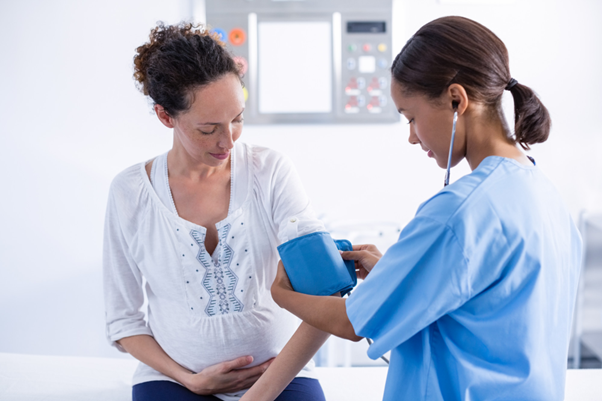After childbirth, some women may develop postpartum hypertension, where blood pressure rises within weeks after delivery. This condition can stem from previous gestational hypertension or emerge anew during the early postpartum period.
What is Postpartum Hypertension?
Postpartum hypertension means high blood pressure after giving birth. It can continue from pregnancy-related high blood pressure or start fresh in the first six weeks after delivery.
Causes and Risk Factors
Several factors contribute to postpartum hypertension:
- Gestational Hypertension: High blood pressure during pregnancy.
- Preeclampsia: Serious condition with high blood pressure and organ damage signs.
- Obesity: Being overweight increases risks.
- Age: Over 35 years old raises susceptibility.
- Multiple Pregnancies: Having had more than one pregnancy.
- Family History: High blood pressure or heart issues in family.
- Existing Conditions: Chronic hypertension or kidney problems before pregnancy.
Signs and Symptoms
Postpartum hypertension may not always show clear signs. Look for:
- Strong headaches
- Vision changes like blurriness or seeing spots
- Shortness of breath
- Feeling nauseous or vomiting
- Pain in upper right abdomen
Diagnosis and Monitoring
Diagnosing involves checking blood pressure regularly after birth. Tests may include blood checks to assess kidney function and other risks.
Management and Treatment
To manage postpartum hypertension:
- Medication: Doctors prescribe drugs to control blood pressure.
- Monitoring: Regular visits to check blood pressure and health.
- Lifestyle Changes: Eat healthy, exercise (as advised), manage stress, and avoid smoking or excessive drinking.
- Breastfeeding: If possible, it can help lower blood pressure and improve overall health.
When to Seek Help
Get medical help if you have severe headaches, vision changes, chest pain, or trouble breathing. These could signal serious complications from postpartum hypertension.
Postpartum hypertension can be managed with proper care and attention. Understanding its causes, symptoms, and treatments empowers new mothers to prioritize their health during recovery. Regular communication with healthcare providers and following lifestyle advice aid in a healthy postpartum journey.



